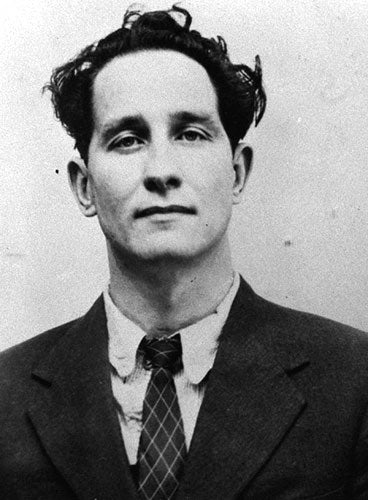Robert Chesshyre: Ronnie Biggs should be freed
It is daft and inhumane to keep him in jail

Out of the corner of my eye I saw Ronnie Biggs shuffle into the prison waiting room. This was more than two years ago, and he was clearly a sick man; he sat opposite his son Michael, scarcely speaking. He shuffled out again before visiting time was over. It was, I thought, only a matter of time before this old man, who had returned himself to British custody, was released. There were few people in that room who would have been alive when Biggs took part in the robbery of a mail train in 1963. His fellow robbers were either dead or had long ago been set free.
A previous Home Secretary, Charles Clarke, refused to release him on the grounds that he was not then "terminally ill". By the time I saw him, he clearly was, but I should have guessed that the Government would change its argument. Now, says Jack Straw, the Justice Secretary, Biggs should not be freed because he is "unrepentant". If unrepentant criminals were never freed, the prison population would be double its now record levels.
Straw's decision came on the eve of an independent report commissioned by the Howard League for Penal Reform which found (again) that the English lock up more of its population than (almost) any other comparable country. The US is an exception, but its penal brutality is a blot on its national reputation. There are more lifers here than in the rest of western Europe put together.
I have written about prisons and followed the (mis)fortunes of the train robbers for most of my adult life. Two of the robbers lodged in my Oxford digs while they were on the run. I was away for the vacation, and my landlady, Ida Pope, thought they were nice "businessmen" who just happened to have heavy suitcases. Ida was illiterate and her husband had died in Oxford jail. It was because the two men had once known the husband that they found their way to Mrs Pope: the whole nation was then on the lookout, but poor Ida failed to make the glaring connection.
The men behaved in a similar way a week later in Bournemouth, and a somewhat sharper landlady shopped them. They were tracked back to Oxford, and Ida appeared on the front of the Daily Mail under the headline "Mrs P's Lodgers". For several years, I got a Christmas card written by Ida's son: "Dear Bob, still no reward." Of course there was never going to be.
Later as a reporter, I covered the arrest of the supposed Great Train Robbery mastermind, Bruce Reynolds, and wrote about Biggs. I believe that the 30-year sentences handed down were based on the value of the haul. If they had robbed the "wrong" train, the crime – in particular hitting and injuring train driver Jack Mills – would have been the same, but the huge sentences would not have been handed down. Gang members such as Reynolds, arrested later, received lesser sentences.
The prison terms were "vengeance" by an establishment that had been outwitted. Which brings us to Straw's decision. Biggs cocked a snook at British justice for more than 30 years. Straw said specifically: "Mr Biggs chose to serve only one year of a 30-year sentence before he took the personal decision to commit another offence and escape from prison." What a po-faced way of depicting a jail break.
When Biggs escaped, there were fewer than 40,000 people in English and Welsh jails. Now there are 84,000. Are we that much more wicked? Prisons, I am told, are largely occupied by the "mad" and the "sad" – yes there are also the "bad" – but there is no doubt that Biggs, unrepentant or not, aged 79 and unable to feed himself or talk, is now in the "sad" category.
In an interview in Brazil, Biggs said he wanted to see the "green grass of home" before he died. He would not be here had he not returned voluntarily, and he has now surely done his time. It must be right to allow him his glimpse of grass. More wicked men serve less time for worse crimes. Releasing this sick old man would have been both a humane gesture and a relief for prison over-crowding. Two good deeds in one totally risk-free gesture.
Robert Chesshyre is a journalist and author. He campaigned to free the armed robber George Davis after his wrongful conviction
